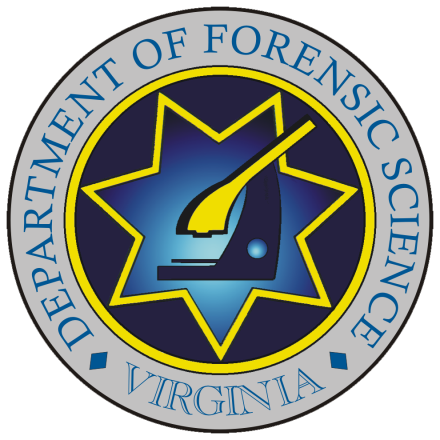Internships and Education
Internships
The primary mission of the Virginia Department of Forensic Science is to provide technical support to Virginia’s criminal justice system. As such, we generally do not have staff available to handle the training of forensic science students or provide opportunities for students to volunteer in the laboratory. That being said, however, our four regional laboratories do occasionally have very limited opportunities for unpaid internships, as the workload permits. Priority for available internship opportunities is given to graduate students in forensic science programs, then college students in science programs at the undergraduate level.
Frequently Asked Questions
What types of internships are offered?
- Internships are project-oriented and are designed to be mutually beneficial to the intern and the Department. DFS does not offer internships consisting solely of "shadowing" experiences.
Am I qualified for an internship at DFS?
- Internships for university students are very limited and are managed by DFS Laboratory Directors. Priority for any available internship opportunities is given to graduate students in FEPAC accredited forensic science programs, then graduate students in forensic science programs at other colleges, and thereafter to college students in science programs at the undergraduate level. High school students are not eligible for internships.
How do I apply for an internship?
- To express your interest in an internship, please submit your request a minimum of one semester prior to the actual semester of interest by sending the following to the Laboratory Director at the lab of interest:
- Completing a state application (please visit jobs.virginia.gov, create an account and print the draft application as you cannot “submit” online) OR
- CV/resume AND
- A cover letter expressing your area of interest including project idea, current degree program, academic/professional letter of reference and the dates you are requesting to conduct your internship
- If you are seeking an internship for academic credit, provide information regarding your college’s requirements, expectations and contact information for the appropriate college representative
Laboratory Director contact information:
- Central Laboratory - Scott Maye, scott.maye@dfs.virginia.gov
- Eastern Laboratory - David Koppenhaver, david.koppenhaver@dfs.virginia.gov
- Western Laboratory - Kevin Patrick, kevin.patrick@dfs.virginia.gov
- Northern Laboratory - Joshua Kruger, joshua.kruger@dfs.virginia.gov
Where can I get more information about forensic science?
- There are excellent online resources that provide general information about forensic science.
- The Forensic Science Foundation's on-line Career Brochure
- The National Forensic Science Technology Center (NFSTC) website: www.forensicsciencesimplified.org
Which schools offer degrees in forensic science?
- Forensic Science is a popular degree program. Programs that are accredited by the Forensic Education Program Accreditation Commission (FEPAC) meet rigorous curriculum standards. Information on FEPAC accreditation standards and accredited programs can be found on their website. For additional information on forensic science education opportunities and a career brochure, visit the student section of the American Academy of Forensic Sciences website. The Department of Forensic Science has an affiliation with forensic science education programs at Virginia Commonwealth University (VCU), located in Richmond, Virginia. VCU offers both B.S. and M.S. degrees in Forensic Science, which are accredited by FEPAC. Several of the lecture/laboratory courses within the Masters program are taught at the DFS Central Laboratory in Richmond. More information about both degree programs can be found at http://www.has.vcu.edu/forensics.
How do I get a job in forensic science?
- The Department of Forensic Science employs forensic scientists who examine and analyze crime scene and other evidence submitted by investigating law enforcement authorities and the medical examiner’s office. The scientists issue written reports and testify in court regarding the outcome of their scientific analyses. DFS forensic scientists rarely, if ever, visit an actual crime scene. DFS scientists assist in training qualified law enforcement offices to retrieve crime scene evidence and submit it appropriately in order to preserve its value as evidence suitable for forensic laboratory analysis. Nearly all forensic scientist positions require a bachelor’s degree in a biological or physical science. Our Forensic Toxicologists hold doctoral degrees in chemistry, toxicology or pharmacology. Advanced degrees are helpful but are not required in other forensic specialty areas. Many of our examiners have a BS degree in chemistry or biology and an MS degree in forensic science. On occasion, DFS will seek to hire a “trainee” for a position in one of its laboratories. Such trainee positions are highly competitive and will also require undergraduate and graduate level education and coursework as noted above. To obtain the requisite experience for a laboratory position, it may be useful to serve an unpaid internship at a forensic laboratory. This is usually easiest to do while one is a student. All positions currently available at DFS, including trainee positions, are listed on our Job Openings page. Our technical positions are also posted to the AAFS Employment Opportunities page and the ASCLD Employment Locator database.
